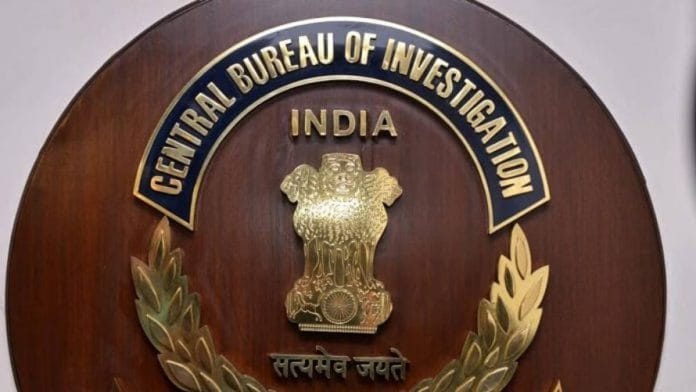New Delhi: A parliamentary panel has recommended amendments to The Delhi Special Police Establishment Act, 1946, which would allow the Central Bureau of Investigation (CBI) to probe cybercrime cases across the country without the need for general consent from state governments. The CBI was established by Parliament through the DSPE Act.
The Standing Committee on Home Affairs based its recommendation on the submission that the need to obtain consent from the state before launching an investigation hinders the early detection of leads in cybercrime cases, and compromises the quality of the probe.
The House panel headed by BJP Rajya Sabha MP Radha Mohan Das Agrawal comprises 30 other MPs from both Houses including Congress’s Priyanka Gandhi Vadra.
Presenting its case before the panel, CBI said at least eight states have withdrawn general consent for probes in their jurisdictions—which is mandated under sections 5 and 6 of the DSPE Act.
“In terms of jurisdictional challenges, the CBI continues to encounter operational constraints owing to the requirement of State consent under Sections 5 and 6 of the Delhi Special Police Establishment Act, 1946 (DSPE Act). As per its submission to the committee, eight states have withdrawn general consent, hampering the quality of investigation and detrimental to timely and prompt investigation,” the committee noted in its report tabled in both Houses of Parliament Wednesday.
“This inhibits timely detection and is particularly problematic for coordinated national responses and digital offences with crossborder (sic) implications. The multiplicity of laws and the absence of harmonized procedures across states complicate access to search, seizure, and trial jurisdiction,” it observed.
Considering these factors, as well as the complexity of cybercrime cases that warrant the agency’s expertise, the committee recommended that the Narendra Modi-led central government amend the DPSE Act. Additionally, the committee advised the Ministry of Home Affairs to consult with states that have withdrawn their consent to resolve the issue.
“The committee in CBI’s reply noted that certain States have withdrawn general consent required under the Delhi Special Police Establishment Act, 1946 (DSPE Act). It creates major hurdle in the seamless investigation and asking specific consent again on a case-to-case basis is time consuming, creates stress on resources and manpower, can hamper the quality of investigation and is detrimental to timely and prompt investigation,” the committee observed in its report titled ‘Cyber Crime – Ramifications, Protection and Prevention’.
“The committee, therefore, recommends that the MHA must engage in active consultation with those state governments that have not given consent in order to resolve this issue. Further the committee is of the view that the Delhi Special Police Establishment Act, 1946 may be amended in order to empower the CBI to investigate the cybercrime cases in the country, without the consent of the state,” it said.
However, the particular recommendation was met with stern criticism from Haris Beeran, the Indian Union Muslim League (IUML) Rajya Sabha MP from Kerala, who called these “sweeping amendments” a violation of the spirit of cooperative federalism.
“This sentence may be deleted, as it may impinge upon cooperative federalism. During the hearing, it was informed to the committee that several states have not given their consent. Therefore, we may not be able to speculate on the reasons why the majority of states have not given consent, and it may not be appropriate to recommend such sweeping amendments under the Delhi Special Police Establishment Act,” Beeran recorded in his dissent note submitted to the committee’s chairperson.
(Edited by Amrtansh Arora)






